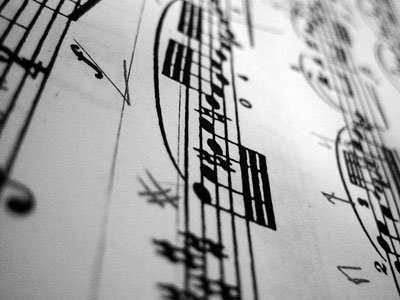All Nonfiction
- Bullying
- Books
- Academic
- Author Interviews
- Celebrity interviews
- College Articles
- College Essays
- Educator of the Year
- Heroes
- Interviews
- Memoir
- Personal Experience
- Sports
- Travel & Culture
All Opinions
- Bullying
- Current Events / Politics
- Discrimination
- Drugs / Alcohol / Smoking
- Entertainment / Celebrities
- Environment
- Love / Relationships
- Movies / Music / TV
- Pop Culture / Trends
- School / College
- Social Issues / Civics
- Spirituality / Religion
- Sports / Hobbies
All Hot Topics
- Bullying
- Community Service
- Environment
- Health
- Letters to the Editor
- Pride & Prejudice
- What Matters
- Back
Summer Guide
- Program Links
- Program Reviews
- Back
College Guide
- College Links
- College Reviews
- College Essays
- College Articles
- Back
Music of Medieval Europe
The music of medieval Europe is truly a fascinating aspect of life at that time. The period of time after the fall of the great Roman Empire was called the Dark Ages. During this time, government fell to complete chaos and disorder, the economy collapsed, and barbaric attacks made the land a desolate place to inhabit. More and more people turned to the Roman Catholic Church, the only institution to survive the fall of Rome, for help and guidance. Monks, it seemed, were better off than most other commoners were—they had sufficient food to eat, a safe place for shelter, and even learned how to read and write. As a result, many people chose to join the monk brotherhoods. Monks often sang to praise and give thanks to God. The earliest form of such music was called the Gregorian chant, which featured male vocals and free rhythm. The language monks sung, and spoke in, were Latin, as it was the official language of the Church. In the Gregorian chant, there were generally no use of instruments, and it was not sung for entertaining purposes.
Beside the Roman Catholic Church, there was another major influence on the music of the early Middle Ages. Most people today think of war between Christians and Muslims when the Crusades are mentioned. While bloodshed did indeed happen, what also happened was that a flow of Arabic ideas traveled west until it reached the Europeans. The earliest ballads are influenced by Arabic love songs, and they are often about chivalry and courtly love. Traveling minstrels and troubadours often journeyed across the land, singing the love songs for a living. Sometimes they would arrive and sing for the royal court, and act as entertainers for the nobles. Since music was thought to help the digestion of food at that time, bards would perform when it was time to eat. Of course, unlike monks and their religious music, troubadours and ballads existed purely for enjoying; now commoners can also experience this form of entertaining.
Music of medieval Europe was most definitely a positive aspect of life. It evolved from being strictly religious to something that everyone could enjoy. The latter was especially important for the people, as life was so crude and tedious in the Dark Ages; people most likely looked forward to anything that may entertain them. In addition, music was proof that the Crusades were not all entirely bloody and bad—it did bring other beneficial things to European countries besides winning battles. Lastly, music in the Middle Ages was positive, because it became embedded deeply in European culture. This enables us, who live in the present day, to look back to European history and experience the same things people once did in the Medieval era.

Similar Articles
JOIN THE DISCUSSION
This article has 0 comments.
